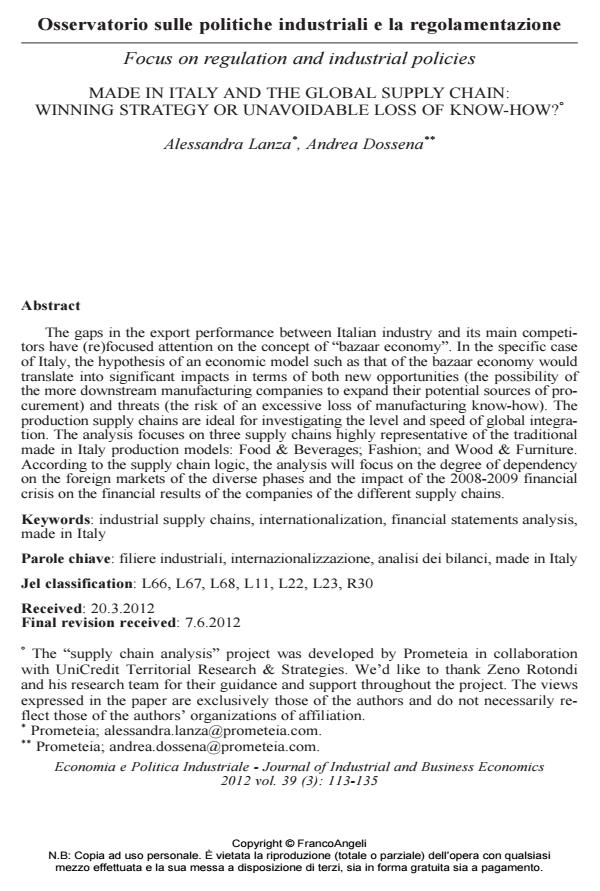Made in Italy and the global supply chain: winning strategy or unavoidable loss of know-how?
Journal title ECONOMIA E POLITICA INDUSTRIALE
Author/s Alessandra Lanza, Andrea Dossena
Publishing Year 2012 Issue 2012/3
Language English Pages 23 P. 113-135 File size 96 KB
DOI 10.3280/POLI2012-003007
DOI is like a bar code for intellectual property: to have more infomation
click here
Below, you can see the article first page
If you want to buy this article in PDF format, you can do it, following the instructions to buy download credits

FrancoAngeli is member of Publishers International Linking Association, Inc (PILA), a not-for-profit association which run the CrossRef service enabling links to and from online scholarly content.
The gaps in the export performance between Italian industry and its main competitors have (re)focused attention on the concept of "bazaar economy". In the specific case of Italy, the hypothesis of an economic model such as that of the bazaar economy would translate into significant impacts in terms of both new opportunities (the possibility of the more downstream manufacturing companies to expand their potential sources of procurement) and threats (the risk of an excessive loss of manufacturing know-how). The production supply chains are ideal for investigating the level and speed of global integration. The analysis focuses on three supply chains highly representative of the traditional made in Italy production models: Food & Beverages; Fashion; and Wood & Furniture. According to the supply chain logic, the analysis will focus on the degree of dependency on the foreign markets of the diverse phases and the impact of the 2008-2009 financial crisis on the financial results of the companies of the different supply chains.
Keywords: Industrial supply chains, internationalization, financial statements analysis, made in Italy
Jel codes: L66, L67, L68, L11, L22, L23, R30
Alessandra Lanza, Andrea Dossena, Made in Italy and the global supply chain: winning strategy or unavoidable loss of know-how? in "ECONOMIA E POLITICA INDUSTRIALE " 3/2012, pp 113-135, DOI: 10.3280/POLI2012-003007